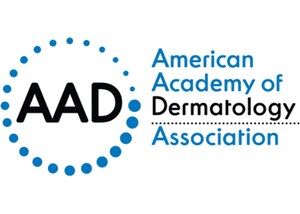
SUPPLEMENT SECRETS UNVEILED: DEBUNKING COMMON MYTHS ABOUT BEAUTY BOOSTERS
Board-certified dermatologist discusses what to consider before taking three common supplements
ROSEMONT, Ill., Sept. 17, 2024 /PRNewswire/ -- Nutritional supplements offer a convenient way to easily increase your daily intake of vitamins, minerals, and other nutrients without making significant lifestyle changes. Despite their growing popularity for achieving thicker hair and better skin, dermatologists warn that the effectiveness of supplements like biotin, collagen, and probiotics is often inconsistent or unreliable.
"It's important to think about supplements similarly to medications, carefully weighing the risks and benefits," said Lauren N. Taglia, MD, FAAD, PhD, a board-certified dermatologist in Naperville, Ill. "Some supplements for skin, hair, and nail health have been linked to increased risks for birth defects, lab test interference, certain cancer risks, and side effects like acne and hair loss, which is why it's important to first consult with a board-certified dermatologist before taking them."
Among the most popular supplements believed to help with hair growth and reduce shedding, biotin (vitamin H or B7) is commonly found in foods like eggs, salmon, sweet potatoes, almonds, and milk, said Dr. Taglia. It helps the body process proteins, fats, and carbohydrates for energy, and supports hair and scalp health. High doses can lead to inaccurate lab results, particularly for hormone tests like thyroid levels.
"Biotin deficiency is rare, and supplements should only be taken if you have a biotin deficiency," Dr. Taglia said. "Otherwise, they can have adverse effects."
Collagen is a key protein in our skin, bones, and tendons. As we get older, our body produces less of it, causing a reduction in skin elasticity and the formation of wrinkles. Consuming collagen through food or supplements may improve skin appearance, joint pain, and possibly hair and nail strength, though more research is needed, said Dr. Taglia.
The FDA does not approve dietary supplements for their safety and effectiveness before they are marketed, which is why consumers should choose supplements verified by third-party labs to confirm they are uncontaminated and correctly dosed, she noted. You can check the label of a supplement to see if it has been third-party tested by looking for a certification stamp from the certification company. Most collagen supplements lack third-party verification and do not have clear ingredient information.
"If your collagen comes from seafood, you can't be sure it's free from heavy metals like mercury," said Dr. Taglia. "High levels of mercury exposure can harm vital organs, leading to kidney damage and cardiovascular issues."
Probiotics – strains of good bacteria naturally found in the digestive tract – are known for improving gut health, said Dr. Taglia. They can enhance skin moisture and smoothness, and help improve common skin conditions like atopic dermatitis, a form of eczema. Yogurt is a good source of probiotics, as are fermented foods like miso, kefir, and sauerkraut.
"When gut microbes thrive, you may see improvements in your skin barrier, the outermost layer of your skin that protects your body," she said. "Probiotics have also been shown to decrease skin sensitivity."
Probiotics may have adverse side effects, such as an upset stomach, gas, diarrhea, or bloating, but these are usually mild and short-lived, said Dr. Taglia.
Ultimately, more testing is needed to determine the long-term effects of nutritional supplements, she said.
"It's important to talk to a board-certified dermatologist about any underlying medical conditions you might have before starting any supplements for your skin, hair and nails," Dr. Taglia said. "Your dermatologist can advise of the safety of the ingredients and determine if a supplement will address your concerns, or if there is a better option. Taking extremely large doses of a vitamin is troublesome because it can have harmful effects on the body. Most people can get the vitamins and nutrients they need from a well-balanced diet, which can ensure their skin, hair and nails stay healthy and vibrant."
To find a board-certified dermatologist in your area, visit aad.org/findaderm.
More Information
Can Oils, Probiotics or Vitamins Heal Eczema?
Supplements and the Skin
AAD B-Roll Library
About the AAD
Headquartered in Rosemont, Ill., the American Academy of Dermatology, founded in 1938, is the largest, most influential and most representative of all dermatologic associations. With a membership of more than 21,000 physicians worldwide, the AAD is committed to advancing the diagnosis and medical, surgical, and cosmetic treatment of the skin, hair, and nails; advocating high standards in clinical practice, education and research in dermatology; and supporting and enhancing patient care because skin, hair, and nail conditions can have a serious impact on your health and well-being. For more information, contact the AAD at (888) 462-DERM (3376) or aad.org. Follow @AADskin on Facebook, TikTok, Pinterest and YouTube and @AADskin1 on Instagram.
SOURCE American Academy of Dermatology







Share this article